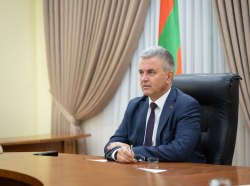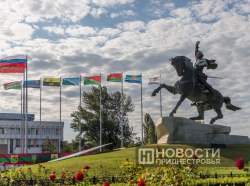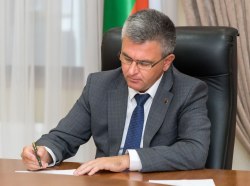Tiraspol, 18 July. /Novosti Pridnestrovya/. The government proposes taking up a loan in the amount of up to 300 million roubles from the Pridnestrovian Republican Bank (PRB) to cover the budget gap. The corresponding amendment is supposed to be made in the law on 2016 republican budget.
The loan is supposed to be taken at 0.01% per annum with the payback period until 2018. The money will be taken in portions of 50−60 million roubles each within six months. This measure aims to prevent delays in the payment of public sector salaries. The PRB has studied and agreed with these terms, although the Supreme Council's committee, which have considered this and other amendments today, is arguing against it.
The government reasons the need for such a loan by the fact that the deficit-ridden budget is not performed.
«In the first six months we received only 64% of planned receipts," said the finance minister, Irina Molokanova, during the committee session.
Committee members maintain that allocating this sum to the central bank is actually the launch of a full scale monetary emission, that is an influx of additional roubles into the economy, which will intensify pressure on Pridnestrovie's national currency and may result in the rouble's fall. According to lawmakers, before launching this mechanism it is necessary to try other resources.
«It is necessary to use the country's all internal reserves which are not related to emission," Alexander Martynov explained the committee's stance in an interview with journalists. Thus, according to the MP, the 2016 budget already has a number of sources to reduce the deficit.
When elaborating the budget this spring, the main debate between the legislative and executive branches of power centred on the sources of covering this deficit. MPs passed a number of amendments to a draft budget submitted by the government, according to which the budget revenues must rise by 1.124 billion rouble against the initial estimates. Government specialists noted that most of these revenues would be impossible to receive. The approved budget was even called «airy» behind the scenes.
The Supreme Council also passed amendments increasing the expected excise duty earnings by 63 million roubles and customs duty earnings by 365 million roubles. However, as Irina Molokanova explained during the committee session, it is these items that see a considerable shortfall in budget revenues.
«Both excise and customs duties were received at about 46% against the plan," said the minister.
Another source of covering the budget gap, according to lawmakers, is the allocation of GUPs' and MUPs' incomes to the republican budget Irina Molokanova informed MPs that this budget item is being executed but it may also face shortfalls. Thus, MPs indicted in the budget not only the share of income which is to be allocated based on the state enterprise's performance in 2015, but also the share which state-run enterprises expect to receive in 2016, in other words the estimated figure. It may differ from the actual financial result.
Nevertheless, lawmakers insist on pausing about taking up a loan from the central bank. They noted that the government had already taken up several loans from the state-run Sberbank to overcome cash gaps at the aggregate amount of over 150 million roubles and proposed to further employ this tactics. Committee members focused on the fact that in this case additional money supply does not flow into the economy, and the already existing funds are only redistributed.
Irina Molokanova underscored, however, that there is a risk that the state will not be able to return the money borrowed from Sberbank, and additional withdrawal of funds from the state-run bank may negatively affect its work.
A PRB representative noted that there is a risk that taking up a 300-million loan will increase pressure on the national currency, which among other things may result in the depreciation of the rouble in the «black market». The banker, however, called on lawmakers to avoid pessimistic views of the situation, citing a recent example of such a considerable amount of cash money coming into circulation — the repayment by the state of the 2015 salary arrears. He also added that the central bank would try to minimise the influence of the additional money supply on the exchange rate.








